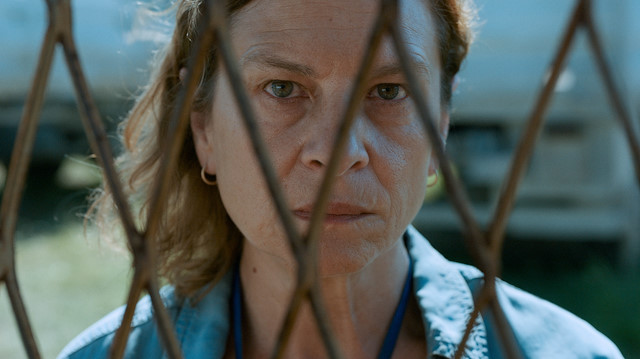ANALYSIS – 'Quo Vadis, Aida?': Srebrenica survivors finally telling their own story

So far, the story of Srebrenica has been told by courts, a few academics, and the media
The Bosnian film “Quo Vadis, Aida?” was shortlisted by the Academy of The Motion Picture Arts and Sciences in the International Feature Film category on Feb. 9. “Quo Vadis” is a film about Srebrenica, more precisely a subplot within the larger narrative of what took place in Srebrenica between July 11 and 13, 1995. The film is set in the former battery factory in Potočari, where members of the Dutch battalion (Dutchbat) were based under the orders of the United Nations (UN). It examines the role of the Dutch soldiers in the events that led to more than 2,000 men and boys under their protection ending up in the custody of the Bosnian Serb troops and eventually being killed in the course of the genocidal operation against the Bosniak population of Eastern Bosnia.
Reklam yükleniyor...
Reklam yükleniyor...
The central focus of the film is on the events which took place within the confines of the Dutch compound, where thousands of refugees from Srebrenica sought shelter, including some of the family members of the UN and Dutchbat staff. It is a story of both betrayal and brutality. It could have happened to any one of us. The story is loosely based on what did happen to Hasan Nuhanovic, someone I know and deeply respect. But it is a fictional story that takes into account the factual framework of the events and projects the image of a large, premeditated genocidal operation on the orders of Radovan Karadzic and Ratko Mladic, both serving sentences for genocide.
The Bosnian premiere was held at the Srebrenica Memorial with dozens of survivors in the audience. From that moment on, an online army of Serbian nationalists mobilized in a grass-roots operation that aimed at lowering the film’s rating on IMDb. Despite their best efforts, however, this film will be part of how our posterity is taught about Srebrenica.
As it happens, at just about the same time “Quo Vadis, Aida?” was shortlisted, the Dutch government decided to award five thousand euros to all members of the battalion who were in Srebrenica in July 1995, as a “gesture of appreciation” for their trauma sacrifices. Dutch society has placed its peacekeepers at the center of their national narrative of the events in Srebrenica. This is understandable to some extent but nevertheless sidelines a much bigger part of the picture. There’s a bigger story to be told: our story. So far, the story of Srebrenica has been told by courts, a few academics (some more, some less well-meaning), and the media. We, the survivors of the Bosnian genocide, have barely begun to tell our story.
Our story is the story of thousands of men who were handed over to the Serbs to be summarily executed while the Dutch soldiers put in charge of protecting them merely stood by. It is the story of the thousands of men who fled the compound on foot in an effort to reach safety, only to be hunted down and slaughtered. It is the story of the tens of thousands of women and children who were forcibly deported. It is the story of three years of hunger, suffering, and fear living under siege. It is the story of being betrayed by an international community who had promised to protect us, but who, as we were being killed, merely averted their eyes. Within this story, the Dutch battalion is merely an unsavory footnote. As long as they continue to place Dutchbat soldiers at the center of their narrative of Srebrenica, Dutch society, and in particular the Dutch government, are colluding with the revisionist forces attempting to obfuscate the human cost of the Srebrenica genocide and confine our story to the peripheral margins of European history.
We also do not need anyone to tell our story for us. We choose how we tell it, when, and to whom. When you are a survivor, it is sometimes difficult to let go of your own experience. The moment you speak or write about it, it no longer belongs only to you --it becomes part of a wider body of general knowledge. To ensure that our survival experiences are remembered, however, it is necessary to do just that. In this sense, "Quo Vadis, Aida?" is a film that made history by simply being made. As the first of what I hope will be many films made about Srebrenica, "Aida" speaks for our generation --a generation that is more dead than alive.
* Opinions expressed in this article are the author’s own and do not necessarily reflect the editorial policy of Anadolu Agency.
Reklam yükleniyor...
Reklam yükleniyor...







Comments you share on our site are a valuable resource for other users. Please be respectful of different opinions and other users. Avoid using rude, aggressive, derogatory, or discriminatory language.